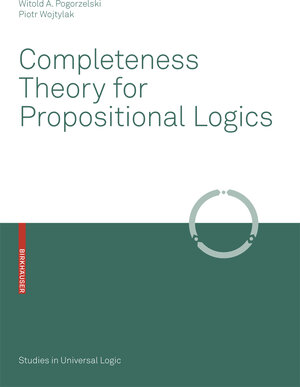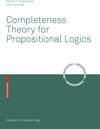
From the reviews:
“The book provides a uniform treatment of the variety of results centered around the completeness property. … book is a good introduction to the problems of completeness. A wealth of examples, comments and theorems well elucidate various difficult aspects of the theory. … From the methodological viewpoint, the book applies the tools that were elaborated in metalogic … . AAL also offers subtle tools for tackling some of the problems raised in the book.” (Janusz M. Czelakowski, Mathematical Reviews, Issue 2010 c)
“The book is written with exceptional clarity and precision. This combination makes it accessible to a wide spectrum of potential readers, and hence it can be recommended to anyone interested in formal logic. … the book may stimulate to further research by opening new fields of investigation and introducing new concepts and ideas. Finally, one cannot miss the extensive and up-to-date bibliography which is included in the book. Summing up, the book … offers a deep and intelligible exposition of completeness theory in propositional logics.” (Tomasz Połacik, Studia Logica, Vol. 95, 2010)
This book develops the theory of one of the most important notions in the methodology of formal systems. Particularly, completeness plays an important role in propositional logic where many variants of the notion have been defined. This approach allows also for a more profound view upon some essential properties of propositional systems. For these purposes, the theory of logical matrices, and the theory of consequence operations is exploited.



